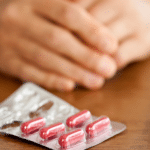Introduction
Depression is a common mental health condition that affects millions worldwide. According to the National Institute of Mental Health (NIMH), around 8.3% of U.S. adults experienced at least one major depressive episode in 2021, impacting their daily lives and overall well-being. Depression can present in many forms, from mild sadness to debilitating conditions.
Fortunately, there are several effective therapies available to help individuals manage and recover from depression. This article will explore the best therapies for depression and help you understand which options might be the best fit for your needs.
Understanding Depression
Before we dive into the therapies, it’s essential to understand what depression is. Depression is more than just feeling sad or down; it’s a serious mental health condition that impacts how a person thinks, feels, and acts. Symptoms can include persistent sadness, loss of interest in activities, fatigue, difficulty concentrating, and changes in appetite or sleep patterns. For some, depression may be a short-term issue, while for others, it can be a long-term struggle that requires ongoing management.
Types of Therapies for Depression
There is no one-size-fits-all solution for treating depression. The best therapies for depression vary depending on the individual’s symptoms, preferences, and overall health. Here are some of the most widely recognized and effective treatment options.
1. Cognitive Behavioral Therapy (CBT)
For depression, cognitive behavioral therapy is one of the most often suggested and successful treatments. Cognitive behavioral therapy aims to recognize and modify the adverse thoughts and behaviors that underlie depression. Patients can be taught to question illogical beliefs and replace them with more rational thought processes through organized sessions. According to research, CBT can be just as successful as medicine for many people and may even lower their chance of relapsing..
Studies indicate that CBT works particularly well for those experiencing mild to moderate depression. It can be delivered in individual sessions, group settings, or even through self-guided programs. This flexibility makes it one of the best therapies for depression across a broad range of situations.
2. Interpersonal Therapy (IPT)
Interpersonal Therapy (IPT) is a time-limited treatment that focuses on improving relationships and communication skills. Since depression often stems from or worsens due to interpersonal conflicts, IPT addresses the social aspects of depression. This therapy can help individuals resolve disputes with loved ones, navigate life transitions, and build better social support systems.
Research from the American Psychological Association suggests that IPT is particularly effective for people whose depression is closely tied to relationship issues. It’s often recommended as one of the best therapies for depression related to loss or significant life changes.
3. Medication
For many people, medication plays a crucial role in managing depression. Antidepressants, such as selective serotonin reuptake inhibitors (SSRIs), serotonin-norepinephrine reuptake inhibitors (SNRIs), and tricyclic antidepressants, are frequently prescribed. These medications work by balancing chemicals in the brain that affect mood and emotions.
While medications are often effective, they can come with side effects, and finding the right one may require some trial and error. According to the NIMH, about 61% of U.S. adults with a major depressive episode received treatment, with many utilizing antidepressants alongside therapy. Medication can be especially helpful for individuals with moderate to severe depression, and it’s often combined with therapies like CBT for the best results.
4. Transcranial Magnetic Stimulation (TMS)
A non-invasive procedure called transcranial magnetic stimulation (TMS) stimulates brain nerve cells with magnetic fields. When someone has depression that is resistant to treatment—that is, when medicine or conventional therapies like cognitive behavioral therapy haven’t worked—TMS is usually advised.
Recent advancements, such as the Stanford accelerated intelligent neuromodulation therapy (SAINT) protocol, have shown promise in treating severe depression in a shorter time frame. Research indicates that nearly 80% of people who underwent this treatment achieved remission, compared to the traditional TMS success rate of 50-60%.
TMS is one of the best therapies for depression, particularly for those who haven’t found success with other treatments. It’s important to note that it usually requires several sessions over a few weeks for optimal results.
5. Ketamine Therapy
Ketamine, originally an anesthetic, has emerged as a rapid-acting treatment for depression. Unlike traditional antidepressants, which can take weeks to show effects, ketamine has been shown to relieve symptoms of depression in hours or days, making it a potential game-changer for individuals with severe or treatment-resistant depression. Ketamine is administered intravenously or via nasal spray under medical supervision.
While research is still ongoing, studies have shown ketamine to be effective for individuals who do not respond to other therapies. It is, however, associated with some side effects, such as dizziness and nausea, and is not suitable for everyone.
6. Mindfulness-Based Cognitive Therapy (MBCT)
Mindfulness-Based Cognitive Therapy (MBCT) combines traditional cognitive therapy techniques with mindfulness strategies to help individuals become more aware of their thoughts and feelings in the present moment. By practicing mindfulness, patients learn to break the cycle of negative thinking that often contributes to depression.
MBCT is considered one of the best therapies for depression, especially for preventing relapse in people with recurrent depression. Studies have shown that it reduces the likelihood of depression returning by teaching patients how to observe their thoughts without becoming overwhelmed by them.
7. Exercise and Lifestyle Changes
Exercise is a natural antidepressant. Numerous studies have shown that regular physical activity can boost mood by releasing endorphins and improving overall brain health. In fact, some research has suggested that exercise may be just as effective as medication for treating mild to moderate depression. Lifestyle changes, such as improving diet, establishing a sleep routine, and reducing stress, also play a vital role in managing depression.
The American Psychological Association recommends incorporating exercise into any depression treatment plan, making it one of the best therapies for depression for those looking for natural and accessible options.
Choosing the Right Therapy for You
Deciding which therapy is best for you can depend on various factors, including the severity of your depression, your personal preferences, and any underlying medical conditions. For some, a combination of therapy and medication may work best, while others might benefit more from non-medical treatments like exercise or TMS. Working closely with a healthcare provider to assess your symptoms and goals is key to finding the most effective treatment.
Conclusion
Depression is a challenging condition, but with the right therapy, it’s possible to manage symptoms and improve quality of life. From cognitive therapies to innovative treatments like TMS and ketamine, there are many options available to help you find relief. Remember that what works for one person might not work for another, so it’s important to explore different approaches and tailor your treatment to your unique needs.
If you or someone you love is struggling with depression, reach out to a healthcare professional to discuss the best therapies for depression and begin the journey toward recovery. Ready to take the next step toward healing? Visit Mission Connection Healthcare to learn more about your options and connect with professionals who can help.








